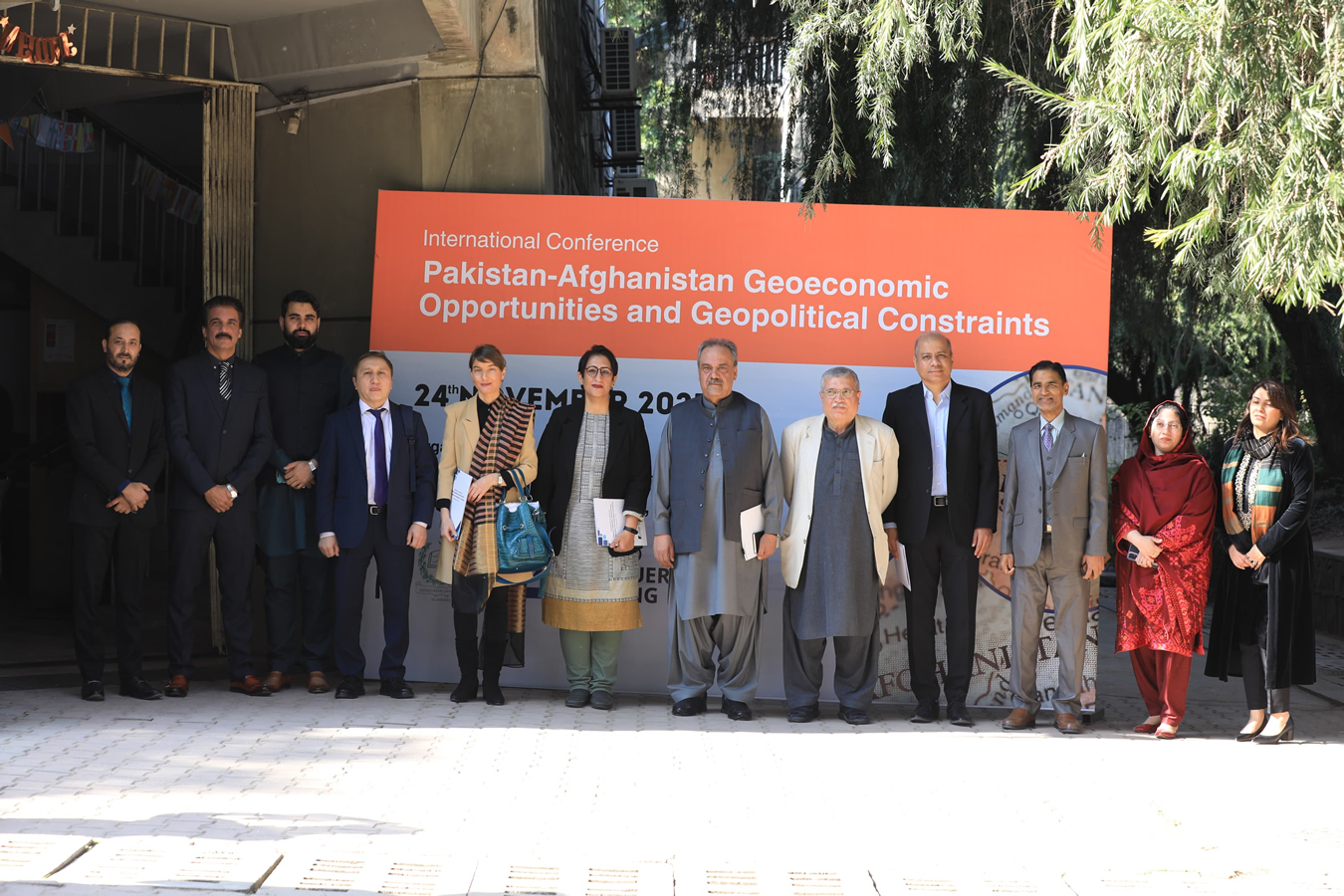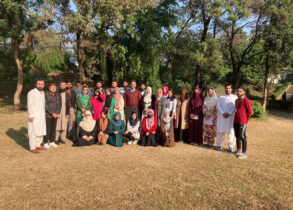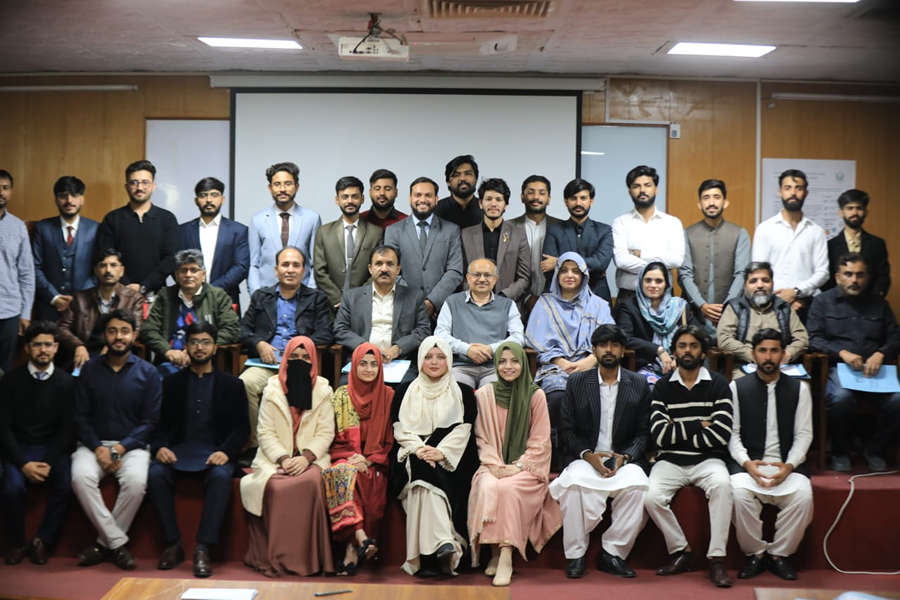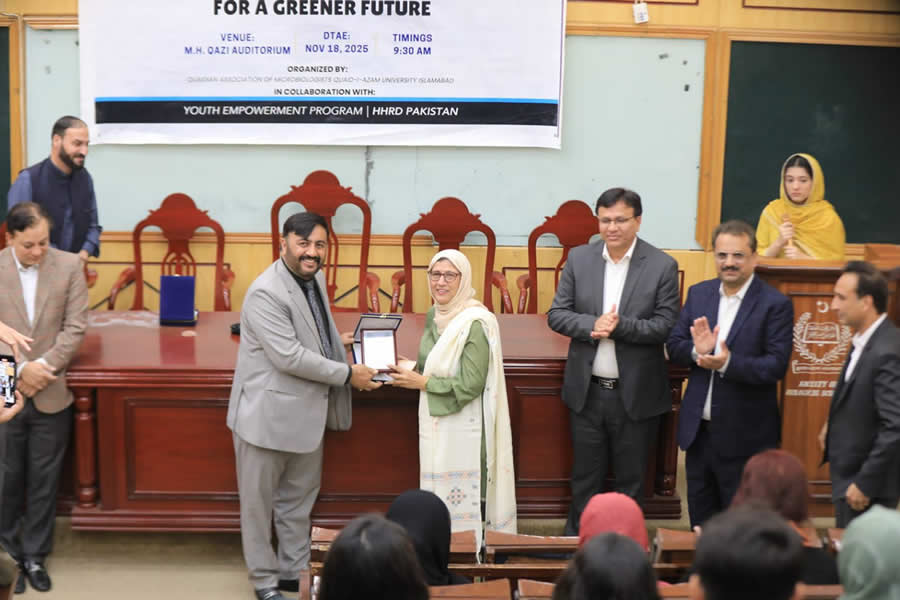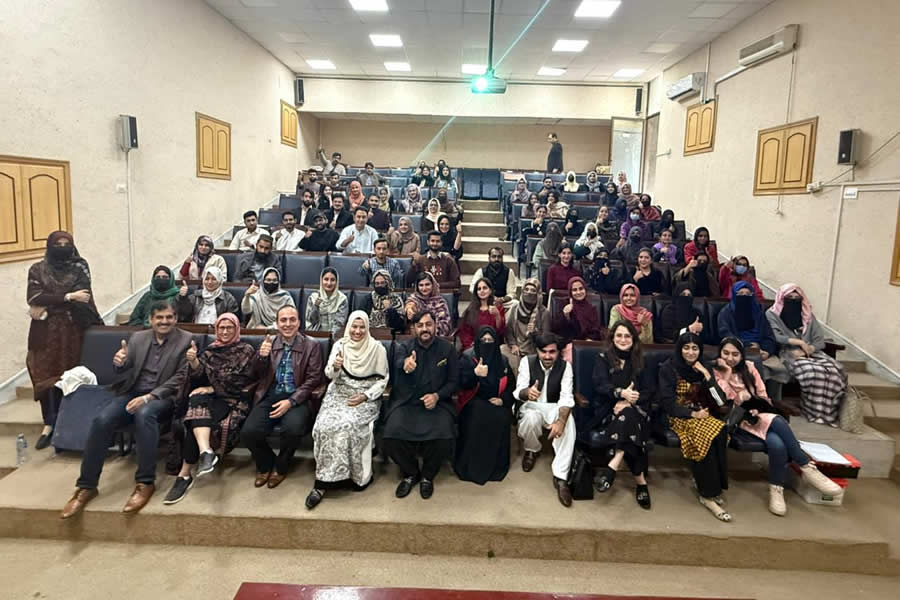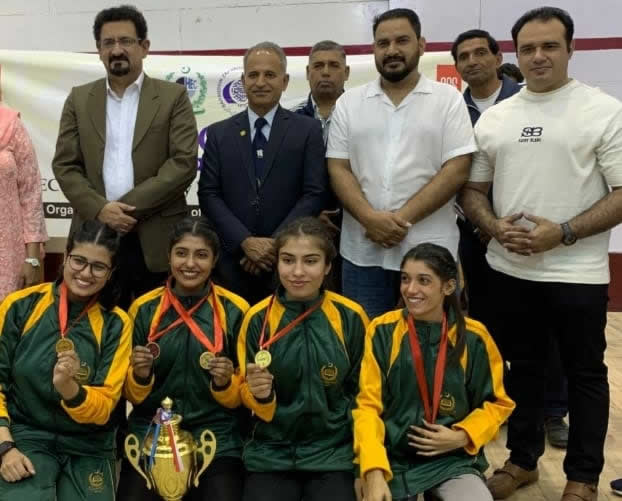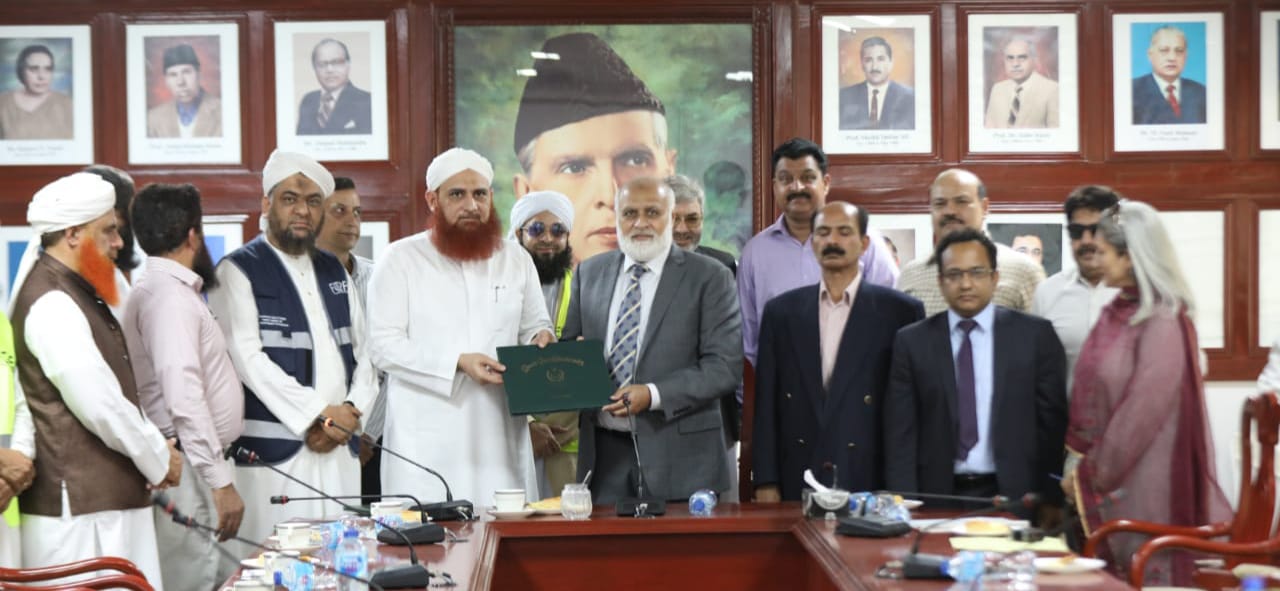International Conference on Pak-Afghanistan: Geoeconomic Opportunities & Geopolitical Constraints
In a collaborative initiative between the School of Politics and International Relations, and the Konrad -Adenauer-Stiftung e.V., a distinguished assembly of speakers convened at a conference to meticulously examine the geo-economic opportunities and geopolitical constraints that define the intricate relationship between Pakistan and Afghanistan. Dr. Farhan Hanif chaired the conference and in his welcome address iterated the importance of such academic endeavors. The regional representative Konrad-Adenauer-Stiftung e.V., Regional Program Southwest Asia, Dr. Ellinor Zeino briefly introduced the Konrad-Adenauer-Stiftung e.V., a German Political Foundation mandated by the German Parliament and funded by the German Government. This symposium witnessed the articulation of insightful perspectives from esteemed contributors, fostering a comprehensive understanding of the multifaceted dynamics underpinning the bilateral engagement between the two nations. Ambassador Asif Durrani, while shedding light on the tumultuous past of Afghanistan, propounded the relevance of political engagement between the two states. He informed the conference about the ongoing efforts on part of Pakistan to calm the cataclysmic milieu that unfolded in Afghanistan following US withdrawal.
Dr. Syed Qandil Abbas, Assistant Professor at School of Politics and International Relations (SPIR), presented his paper titled Regional Implications & Geopolitical Dynamics, signified the quintessential role the troika of Pak-Iran-China can play in Afghanistan, keeping in perspective the dimming US and western influence in the region. Following that distinguished Dr. Rabia Akhtar, Dean of Social Sciences at the University, Lahore, kindled the audience with the gravitas of Security & Counter Terrorism Cooperation and thoughtfully provoked the thinking minds to reconsider the expectations Pakistan look towards the Taliban with. She also enlightened the audience about the perils of cross-border terrorism and the possible course of action for Pakistan in the form of consultation and collaboration and peaceful relocation of illegal refugees. Mr. Faheem Ullah Khan, lecturer at SPIR generously presented his paper titled Role of Media and Information Warfare and informed the audience about media education, the role of social media, and the ethics of journalism, which are predicament to candid people to people ties.
The final session was chaired by Prof Dr. Nazir Hussain, Dean (R), Faculty of Social Sciences, Quaid-i-Azam University, who, too, like other speakers, emphasized the preeminence of dialogue and advocacy. Mr. Sulaiman Bin Shah, Former Deputy Minister, Ministry of Industry & Commerce Afghanistan, posited how true cooperation and healthy competition can redefine the relation between Afghanistan and Pakistan. He emphasized the role of capacity building through regional and international organizations as the ice-breaker. Following that, Mr. Amir Ullah Khan, Chairman, Department of Political Science, Islamia College Peshawar, took the liberty to present his paper on Refugee and Migration Challenges, where he sketched the way forward regarding repatriation of Afghan refugees. Dr. Mukhit Assanbayev, Chief Expert, Department of International Security, Kazakhstan Institute of Strategic Studies, Astana, Kazakhstan, initiated a discussion on energy cooperation and resource sharing between Central and South Asia and stressed the relevance of peace for land connectivity. Mr. Sheharyar Khan of National Dialogue Forum, Islamabad, expressed his views on the possibility of Pakistan’s shift from geopolitics to geoeconomics. He was sanguine about such transmutation and emphasized the pertinence of structural changes and peace building for the region.
Following the Q&A session, the conference concluded with optimistic notes for the future endeavors of the region and the geoeconomic opportunities that the future holds.
School of Politics and International Relations (SPIR) at Quaid-i-Azam University is Pakistan’s premier institution of higher learning in International Relations and Political Science, offering quality education to students enrolled in its under-graduate and post-graduate programs. SPIR is also one of the oldest and largest institutions of advanced studies in IR and political science in the country. The Konrad Adenauer Stiftung advocates for peace, freedom, and justice nationally and internationally through political education. We promote and preserve liberal democracy, the social market economy and the development and consolidation of the consensus of values.

